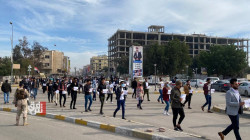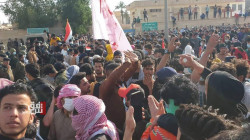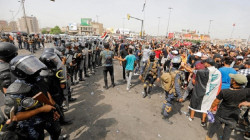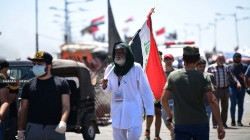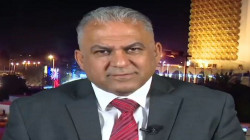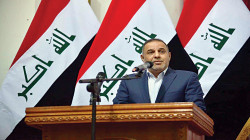Al-Muthanna: What you do not know about Iraq's poorest governorate?
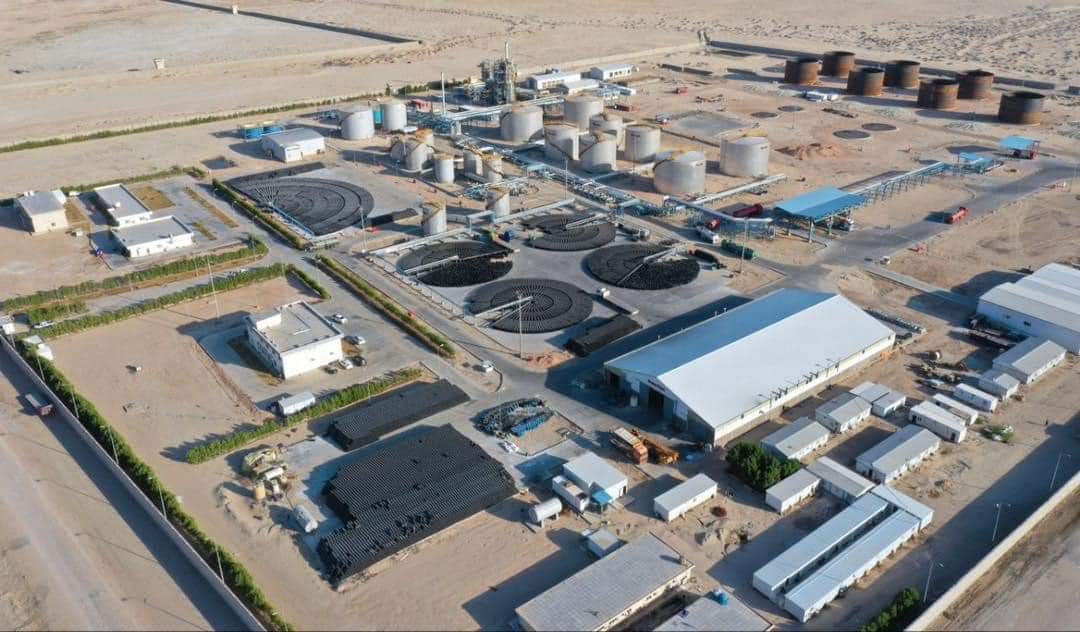
Shafaq News / Al-Muthanna Governorate is distinguished by its geographic location and includes agriculture, industry, and tourism, both archaeological and natural, as it is the center of Iraq's cement industry and is anticipated to serve as the country's food basket. Meanwhile, the Samawa desert contains a variety of raw materials, giving it an economic advantage over the other governorates, but in an odd paradox, it ranks higher than the poorest governorates by 52%.
Al-Muthanna is a city in southwest Iraq that is situated on the southern edge of the sedimentary plain. However, a portion of it is also found in the southwest corner of the western plateau, placing it in the Middle Euphrates area.
It is 282 kilometers south of the capital, Baghdad, and is bordered by Diwaniyah to the north, the Kingdom of Saudi Arabia to the south, Dhi Qar and Basra to the east, and Najaf to the west. In addition, it is the second largest governorate in Iraq in terms of area, with a total area of (51,740) km2, and constitutes (11.8%) of the country's area.
Al-Muthanna is distinguished by its geographical location between the south and center region, and the presence of archaeological and tourist landmarks, including Uruk, which was included in the World Heritage List, and Sawa Lake.
It is also distinguished by the southern desert region, which makes up much of the governorate's area and serves as a strategic reservoir for the development of agriculture, industry, and tourism due to the abundance of raw materials it contains, particularly those used in the cement industry and the availability of arable groundwater.
The governorate is also distinguished by its admission into the exploration blocks for oil and gas, while the good security situation there is a key factor in promoting investment.
Specialists believe that the issue of developing the investment sector in the joints of all real economic sectors needs a vision of investment priorities.
According to economist Dhiaa’ al-Mohsen told Shafaq News Agency that "the government must invest in the sector that provides it with food security, i.e., the agricultural sector." He further explained, "This sector can provide large numbers of job opportunities, in addition to its ability to operate manufacturing industries, by diverting surplus agricultural production."
He stressed that "investment in the industrial sector needs the amendment to the Industrial Investment Law, which has been waiting to be approved in the House of Representatives for a while."
"Industrial investment also needs international companies that have extensive experience and knowledge of the quality of the country’s raw materials, as well as a young and educated workforce that can deal with modern technology."
Al-Muthanna Governorate has the advantage of a large area, and its desert constitutes approximately 20 million dunums, while the lands bordering the Euphrates River are about one million dunums.
Climate change has caused the low level and quality of water, as well as the desertification of agricultural land, which resulted in internal migration to seek work elsewhere instead of the previous dependence on agriculture.
However, according to economist Majid Abu Kalal, two years ago, the facts changed after new factors entered the scene, "Al-Hashd al-Shaabi (Popular Mobilization Forces-P.M.F.), Imam Hussein shrine’s administration, and the holy shrines have begun to invest thousands of dunams, and currently work is underway with the Planning and Development Council and the local government to interlock agriculture with the associated manufacturing industries."
Abu Kalal confirmed, "The economic advantage of the governorate that cannot be ignored is the presence of 18 million dunums of arable land in the Samawa desert."
"Therefore, we encourage agricultural investment, taking into account that agricultural investment is linked to transformative manufacturing."
For example, in irrigation, there are modern irrigation methods that need factories to produce drip irrigation networks, which are not available in Iraq, and a contract was recently signed with the Investment Commission to establish a few factories to manufacture them in al-Muthanna, according to Abu Kalal.
"As well as canning, as the canning industry depends on agriculture because many products are low in the season due to the large supply. Therefore, this industry will contribute to supporting farms, and many other industries related to the agricultural sector."
Al-Muthanna’s local government complains about the lack of self-supply sources, as it lacks a border crossing in the absence of agricultural and industrial identity, "However, the situation has changed over the past years, after working in two directions, government and investment, started," stated the Advisor to the Governor of Muthanna for Construction and Investment Affairs, Haider al-Wahami.
"As a result of the scarcity of water, the local government has activated the governorate's resources, including investing in the groundwater that is abundant in the Samawa desert."
He told Shafaq News Agency that "in addition to the two million dunums that are being invested by al-Muhandis Company, we depend on groundwater to cultivate about eight million dunums. Given Samawah's abundant groundwater resources, it is also anticipated that Samawah would serve as Iraq's main source of food in the future."
"This was evident in the current marketing season, especially in the marketing of the wheat crop, which reached 130,000 tons this year, i.e. this strategic crop's highest level yet."
As for the industry axis, al-Wahami believes that "the governorate is promising in industry, especially cement, and there are three cement factories (al-Doh, Saman, and Najm al-Muthanna) which operate in an investment manner, and their production capacity is about six million tons per year exported outside the governorate."
"There are also investment licenses under implementation for five factories, in addition to two government cement plants, and there are 43 private factories for different industries in the Najmi district," he added.
As for the oil industries in al-Muthanna, the governor's advisor explained that "there are two exploratory blocks, the tenth exploratory area, and the Eridu joint field with Dhi Qar governorate, which the Russian company Lukoil is working on within the fourth licensing round."
"According to the contract signed with the company, it includes drilling nine wells in the tenth block and the work has been completed. In 2025 oil will be produced, and production will escalate to reach 30,000 barrels by 2027."
"There is also the joint exploratory area 12 with Najaf governorate, specifically at the point of the Salman area, and the Russian company Bash is working on four exploratory wells, namely Salman 1, 2, 3, and 4," al-Wahami said.
Specialists confirm that the economic problem in Iraq is the rentier economy, as the country has been dependent on the export of crude oil for 70 years, and this export cannot be replaced by another industry that depends on crude, a source of depleted natural wealth.
They emphasize the necessity to avoid relying on extractive industries, which are a sector dependent on raw materials and have a small labor base.
They also explained that extractive industries need huge capital, skills, and technical competence for workers, which are currently unavailable in al-Muthanna, and therefore, most of the workers are from outside the governorate or from foreign nationalities.
"The industrial sector, including the oil industry, is witnessing a development, which requires the availability of skilled professional or specialized cadres, which is lacking in al-Muthanna, as it has no training and development center to prepare the unemployed to work," said al-Wahami.
At a time when the database of the unemployed of the Ministry of Labor shows the registration of 60,000 unemployed workers in the governorate, al-Wahami revealed that "Lukoil will request manpower from al-Muthanna and Dhi Qar exclusively in the tenth area during the coming period, but they will require specialists, which confirms the need to open the center to rehabilitate these unemployed cadres."
Al-Muthanna governorate is moving towards "transformative industries", which means industries whose raw materials are obtained from agricultural production, for example, tomato paste, as its raw material is tomatoes, according to al-Muthanna Planning Director Qabel Hammoud.
On the other hand, Hammoud pointed out that, "The governorate has Uruk city, which has taken on a global dimension after being included in recent years in the World Heritage List."
"Once antiquities are well promoted, new horizons will be opened for the entry of foreign tourists, students, and specialists in heritage, archeology, and history, thus generating a new economic aspect due to tourism," he stressed.
"In addition to tourism, the al-Muthanna desert has a variety of raw materials that, with the correct marketing, investment, and backing for the private sector, will develop into companies and businesses and immensely benefit the governorate."
"However, as long as these raw materials remain neglected, poverty and lack of income will certainly continue to plague the residents," the director of Muthanna Planning concluded.
Furthermore, according to a previous statement by the spokesman for the Ministry of Planning, Abdul Zahra al-Hindawi, al-Muthanna governorate tops the poorest governorates with 52%.
